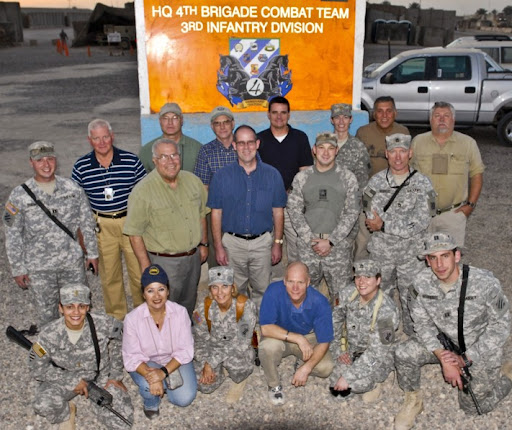 The Accidental Guerrilla
The Accidental GuerrillaFighting Small Wars in the Midst of a Big One
David Kilcullen
This book focuses on the need to continually assess who the enemy is, how conflicts change over time, and how the pursuit of terrorists takes us into the traditional territory of relatively non-radical elements of the society we are fighting in. These local societies feel the intrusion of foreign force and respond not so much for ideological or spiritual reasons but because we are there. Kilcullen contends that warfare is changing and that the environment is set not by the superpower approach to conventional war but by the local actors in one of four scenarios:
(1) Backlash Against Gobalization - The West dominates the process and creates the impression of Western imperialism as local customs, culture and society is impacted by the West.
(2) Globalized Insurgency – There is a transnational globalized insurgency led by takfiri extremists like Al Qaeda which uses provocation, intimidation, protraction, and exhaustion as the tools to intimidate, co-opt, or mobilize its base, the 1.2 billion Sunni Muslims around the world.
(3) A Civil War within Islam – An internal conflict in Islam led by the takfiri radical movement against the Muslim status quo can spill over into a larger conflict with the West.
(4) Asymmetric Warfare – Given the size of US military any rational enemy is likely to fight the US using non-conventional means.
The threat environment is a combination of these scenarios and that different actors are involved for different reasons. US overwhelming military power will result in non-conventional war and it is critical that we understand the reasons and who our enemies are, and what type of response is most appropriate.
The secret to fighting wars in the 21st century according to Kilcullen is understanding that we are not involved in a global war on terror but rather against a relatively small group of takfiri terrorists. The way we fight against them is not with conventional war fighting as defined by the Powell Doctrine (absolute military overkill). When the US tries to respond with overwhelming force we create the conditions that actually spawn a larger guerrilla war. The US reaction to takfiri terrorists causes the local population to react negatively and side with Al Qaeda (see graphic).
Kilcullen covers other topics in the book. He compares Iraq and Afghanistan which are entirely wars and puts forward a template for how to proceed while acknowledging that every conflict from the local to regional to national is different. One of my favorite quotes from the book is from Col. H.R. McMaster – “If you ever think you have the solution to this, you are wrong and you are dangerous…” There are precepts but no models, scenarios but no ironclad outcomes, the fight in the 21st century is complicated and requires a re-thinking by our military leaders of how we fight.




